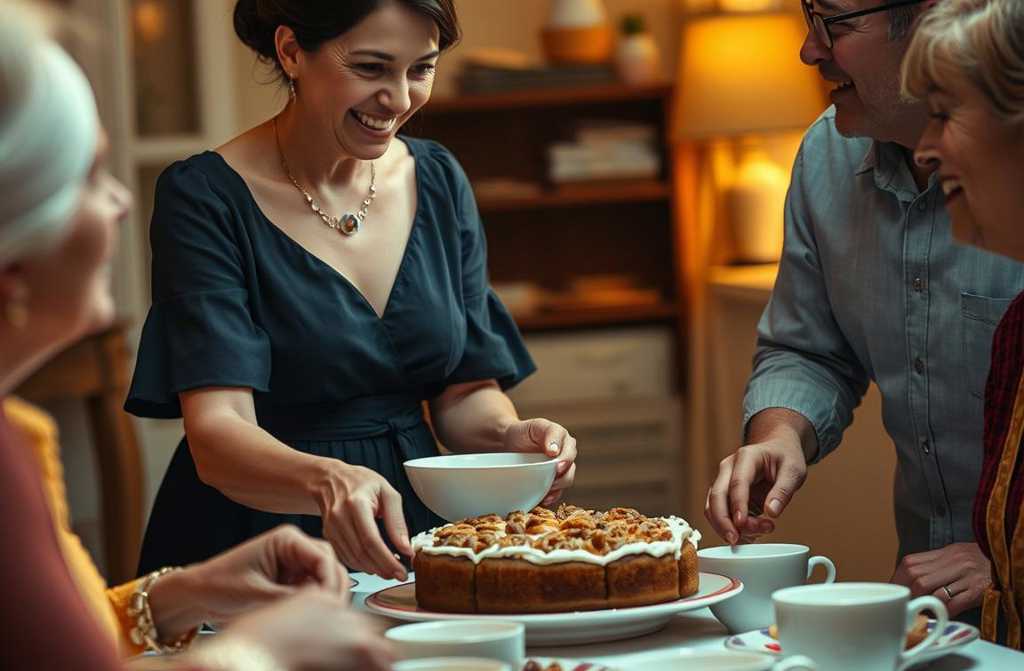Invited by the In-Laws: A Dazzling Table Revealed
My in-laws had asked us over to their home. When I saw their table, I was utterly stunned.
For three days, I had prepared to host them, as if for some grand examination. I had grown up in a village near York, where hospitality was not merely tradition but a sacred duty. From childhood, I was taught that a guest must leave well-fed and content, even if it meant parting with the last slice of bread. In our home, the table always groaned under the weight of foodcold meats, fine cheeses, roasted vegetables, bite-sized savouries, and pies. It wasnt just a meal; it was a mark of respect, a symbol of warmth and generosity.
Our daughter Eleanor had married a few months prior. Wed met the in-laws before, but only in neutral placesover tea, at the wedding. Theyd never seen our cosy cottage on the outskirts of London, and I was nervous about welcoming them properly. I suggested they visit that Sundayhoping we might grow closer, learn more about one another. My mother-in-law, Margaret, agreed cheerfully, and I threw myself into preparations: stocking the pantry, buying fresh fruit and cream, baking my famous walnut sponge. Hospitality ran in my blood, and I spared no effort to make a good impression.
The in-laws turned out to be refined peopleboth university professors, dignified and sharp-witted, commanding respect. Id feared awkward silences, but the evening passed pleasantly. We spoke of our childrens future, laughed over shared stories, and lingered late into the night. Eleanor and her husband joined us later, and the warmth only deepened. Before leaving, the in-laws invited us to their home the following week. Their enjoyment of the evening warmed my heart.
The invitation filled me with joy. I even bought a new dressnavy blue, modestly cut, wanting to look my best. Naturally, I baked another cakeshop-bought ones held no charm; they lacked soul. My husband, James, grumbled that morning about eating before we left, but I cut him short: “Margaret said shed take care of everything. If you arrive full, shell be offended! Hold on a little longer.” He sighed but obeyed.
When we reached their townhouse, I marvelled at its elegance. The interior couldve been plucked from a magazinerecently renovated, furnished with taste and expense. I anticipated something special, imagining a cosy evening ahead. But when we were led to the parlour and I saw their table, my heart sank in disbelief. It was bare. Not a plate, not a napkin, not the faintest hint of a bite to eat. “Tea or coffee?” Margaret asked with a faint smile, as if this were perfectly ordinary. The only offering was my cake, which she praised before asking for the recipe. Tea and a single slicethis was our “feast.”
Staring at that empty table, a knot of resentment and bewilderment tightened in my chest. James sat beside me, his eyes betraying hungry disappointment. He stayed quiet, but I knewhe was counting the minutes until we could leave. Forcing a smile, I declared it time to go. We thanked them, said our goodbyes, and as if nothing were amiss, they announced theyd visit us again next week. Of coursein our home, the table would be laden, not left barren with nothing but a lonely teacup!
In the carriage on the way back, I couldnt shake the scene from my mind. How could anyone receive guests like that? I thought of our families, the chasm between our notions of hospitality laid bare. To me, a table was the heart of a home, a testament of careto them, it seemed, just another piece of furniture. James stayed silent, but I knewhe was dreaming of the roast chicken waiting in our larder. That morning, Id forbidden him from eating it, and now he stared out the window like a man betrayed. And I? I felt cheatednot by the lack of food, but by the indifference I hadnt expected from people who were now family.







